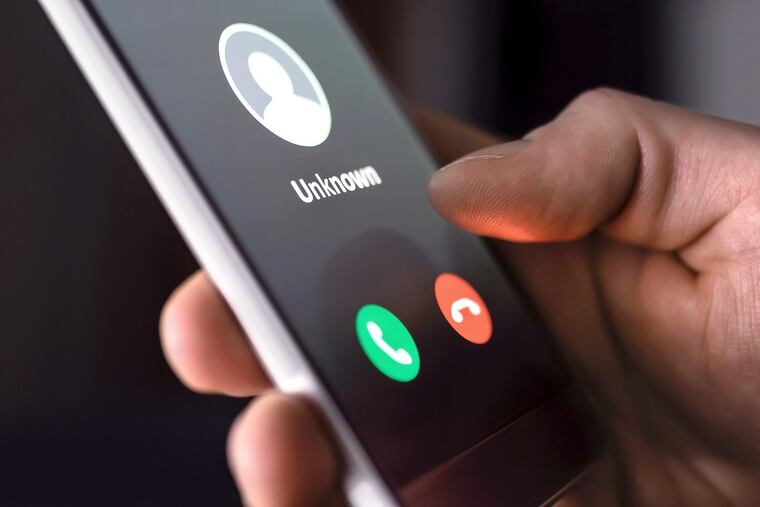AT&T, Verizon, Comcast and others promise to help investigators trace robocalls
The companies — including AT&T, Comcast, T-Mobile, and Verizon — pledged to block fraudulent calls on their networks and assist law enforcement investigating the calls’ origins.

Twelve major telephone companies have agreed to work with 51 attorneys general to combat illegal robocalls, the latest effort to fight the surging problem of scam calls.
The companies — including AT&T, Comcast, T-Mobile, and Verizon — pledged to block fraudulent calls on their networks and assist law enforcement investigating the calls’ origins, attorneys general from Pennsylvania and New Jersey announced Thursday. The agreement has no deadline for when the companies must implement the robocall protections.
Among other things, the companies promised to offer free call blocking services to consumers, implement call authentication technology, monitor their networks for suspicious call traffic, and cooperate in investigations seeking to trace back illegal calls.
“Robocalls are not only a nuisance, they can facilitate scams and other illegal conduct,” New Jersey Attorney General Gurbir Grewal said in a statement. “Robocall technology is ever-changing, and so is anti-robocall technology. That’s why it is so important that the telecom industry collaborates with law enforcement to keep pace with the latest technological changes.”
The rise of robocalls has been driven in part by caller ID “spoofing," which lets scammers place calls that appear to come from local numbers or legitimate businesses. Americans received an estimated 4.7 billion robocalls in July, according to YouMail, a robocall blocking application. Industry experts have predicted that nearly half of all mobile calls this year will come from scammers.
The phone industry has already been working to implement technology that lets consumers know that incoming calls are actually from the owner of the number listed on a caller ID. The technology, called STIR/SHAKEN, which stands for the Secure Telephone Identity Revisited (STIR) and for Signature-based Handling of Asserted information using toKENs (SHAKEN) and is a protocol for authenticating phone calls.
Meanwhile, the U.S. House and Senate have passed separate bills aimed at protecting consumers from unwanted spam calls.